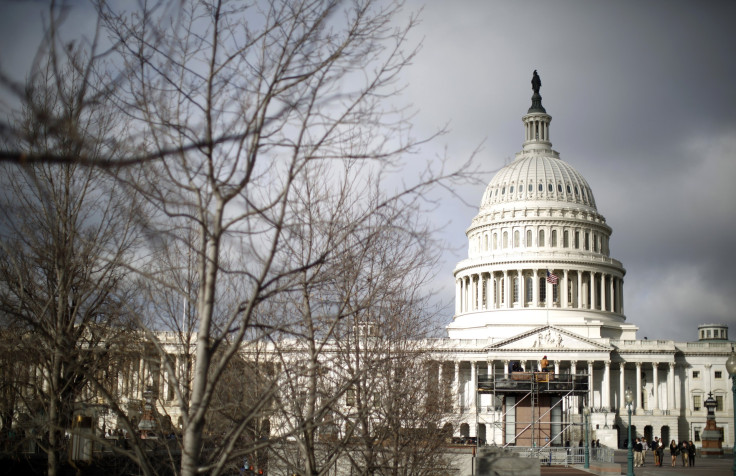Sequester Cuts 2013: What Happens When Defense, Other Cuts Take Effect At Midnight?

Sequester cuts that will reduce defense and domestic spending budgets for the remainder of 2013 take effect at midnight Friday.
The reactions among Democrats and Republicans about the impact of the $85 billion in automatic, across-the-board spending cuts are just as different as the approaches both sides are seeking to avert the cuts. On one hand, President Barack Obama and his allies are seemingly playing the fear card, saying if lawmakers cannot compromise and sequestration happens, emergency responders will be laid off and the hours worked by border patrol agents reduced.
“FBI agents will be furloughed,” Obama said in a Feb. 19 speech. “Federal prosecutors will have to close cases and let criminals go. Air traffic controllers and airport security will see cutbacks, which means more delays at airports across the country. Thousands of teachers and educators will be laid off. Tens of thousands of parents will have to scramble to find child care for their kids. Hundreds of thousands of Americans will lose access to primary care and preventive care like flu vaccinations and cancer screenings.”
It may sound like the apocalypse, but Republicans are saying the warnings are hyped up.
“Folks are recognizing that Washington, D.C., is over-blowing and over-playing,” Rep. Tim Huelskamp, R-Kan., said. “I think most Americans are going to wake up Friday morning and yawn.”
But who is right? When experts look at the immediate effects of the sequester, they see nothing disruptive occurring on the first day. They consider it a slow bleed with impacts that would happen weeks after the March 1 deadline if there is inaction. And as the cuts are gradually implemented, some say lawmakers will be in no hurry to solve sequestration until there is huge public outcry.
“The cuts will not immediately affect most of the country,” Eric Patashnik, a professor of public policy and politics at the University of Virginia, said. “Because the effects are not going to be highly visible to most citizens, many of the members of Congress will not feel immense pressure to solve the problem, but it will have a significant impact on some states and jurisdictions including Virginia.”
For Virginia, where the economy is largely fueled by federal government contracts, approximately 90,000 civilian employees with the Department of Defense will be furloughed, according to the White House’s analysis of state impact. That would reduce gross pay by a total $648.4 million.
Cuts to the Army, Air Force and Navy’s funding would impact operations and maintenance.
“Those in defense will be frustrated,” Patashnik, who is also a nonresident fellow at Brookings, said. “It is also important to remember we still have political polarization and Democrats and Republicans may prefer the sequester to any alternative. We don’t have any agreement on a solution that is acceptable to both sides. ... No one has come up with an alternative, so we end up with a bad policy with budget cuts that are not all targeted and no policy makers want to see [it] occur. But it’s the least bad alternative.”
Others say both sides are taking a gamble regarding the sequester’s outcome and the real-world effects.
“No one knows how this is going to play out even [Friday],” Mackenzie Eaglen, a resident fellow at the Marilyn Ware Center for Security Studies at the American Enterprise Institute, or AEI, said. She added that the sequester impacts to the defense department, which is the largest federal agency, could take months. However, for smaller agencies like the health department, the impact could be seen in the next two or three weeks after the deadline has passed.
Furlough notices will be among the first order of business for agencies come Friday, with implementation around April. Estimates are that about 750,000 people could lose their jobs.
“The federal government is big, and it takes time,” Eaglen said.
Until then, she added that a lot of bureaucratic churn and agencies devising alternate plans is to be expected in the immediate time period after then sequester deadline.
“Expect the work will be done behind closed doors inside agencies,” Eaglen said, adding that the public relations from politicians in coming days will remain the same: the blame game.
“I will expect very little high-profile action from federal agencies along the lines of the kind we see from customs and border patrol when they released illegal immigrants,” she continued. “The long lines at the airports will take a few days or a few weeks to become a reality, if it really does.”
© Copyright IBTimes 2024. All rights reserved.






















